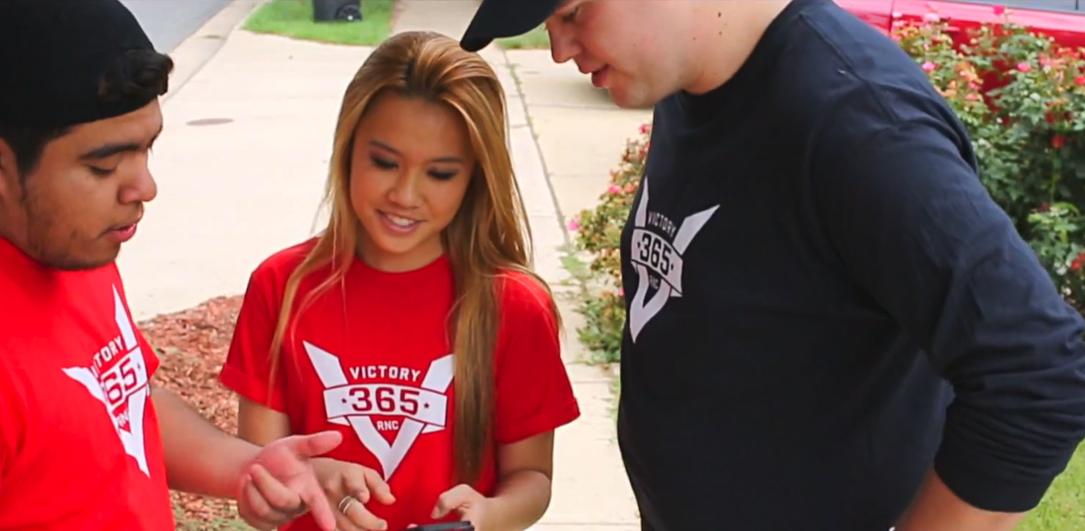Millennials Emerge as Force in 2016 Elections
Headwinds from a lackluster economy and a botched Obamacare rollout have served up a once-in-a-generation opportunity for Republicans to enlist droves of young people into conservatives’ ranks, several experts say.
There is mounting evidence that President Obama’s inability to restore vigorous job growth, let alone heal the planet and stem the rising oceans, has led to a new openness to conservative principles among young people.
Today, the same young people who cast two-thirds of their votes for then-candidate Barack Obama in 2008 are restless, and looking for new answers.
A recent Harvard poll showed President Obama’s approval has dipped below 50 percent among 18-29 year olds. That’s still higher than the population at large, but a far cry from the adoration he once enjoyed.
Millennials, generally defined as those born in the decades of the 1980s and ’90s, tend to be socially libertarian and yet lean conservative on economic issues. And it’s hard to find a demographic hit harder by the job-bereft recovery.
Raffi Williams, deputy press secretary of the Republican National Committee, says young voters “are worried about their futures since so many are struggling to find a job on the proper career path, and they are being burdened by skyrocketing healthcare cost due to Obamacare.”
According to Williams, Republicans are looking for new ways to reach out to young people. The Victory 365 campaign, which targets a younger demo and encourages volunteerism, is one example.
Featuring a young woman hiking in a rural setting, the site is essentially a portal that signs up young people interested in participating in the political process: making phone calls, knocking on doors, distributing literature, and so forth. Beyond a few RNC mentions, the party branding is minimal. That’s smart considering Millennials’ palpable disdain for political parties.
Another initiative underway is Campus Captains, which seeks to demonstrate why it’s now cool to join the GOP. Republican leaders hope signing up college students to spread the GOP’s message will also energize voters to turn out on Election Day.
Of course, no one is saying the shift will be easy. Jose Sanchez, political science professor at Long Island University in Brooklyn, N.Y., said Republicans face an uphill battle.
“There has been a shift in society and we’ve moved to a sharing economy where people are not employed full time or working with large corporations,” he said. “In essence, people have become disconnected from large institutions. And while people such as Rand Paul stir interest in Millennials, I don’t think they’ll vote Republican as a result.”
Still, Millennials represent a voting bloc of 80 million people, and even modest GOP inroads could spell the difference between victory and defeat. In 2012, Obama carried the youth vote by 24-point margin over Mitt Romney. Will young people in 2016 continue to vote for a Democratic Party that has yet to come up with a way to invigorate the U.S. economy?
Consider: Just 35 percent of the Millennials who voted for Barack Obama in 2012 say they will definitely vote in this month’s election. Of those who cast ballots for Mitt Romney, 45 percent say they will definitely vote.
So how do Republicans plan to win the hearts and minds of younger voters? Williams says the key will be getting Millennials to convince other Millennials.
“In the past we used to take our great young volunteers and send them away from their communities to work,” he said. “Now we are having Millennials focus on working in their communities.
“Only by engaging young people where they live, work, and socialize will we be able to bring more Millennials into the fold,” he added.
Thus the Republican National Committee is working diligently to be more active on college campuses and wherever Millennials can be found.
One congressman urging Republicans to take the campaign to Millennials is Illinois GOP Rep. Aaron Shock. At 33, Shock is the second youngest member of Congress, and he says it’s a mistake for either party to assume Democrats are somehow destined to always carry the youth vote.
“I believe any candidate can win over any demographic of voters if they first show up, show them the respect, and make their message relevant,” Shock told CNN.
The best way to make conservatism relevant he said is to focus on the virtues of a thriving free-market economy. “It’s their driving force for what motivates them to the polls, the issue they care most about,” Shock said. “The president’s track record on the economy the last six years, it’s not been so well. And it at least opens the door for Republicans.”
Another key according to Crossfire co-host S.E. Cupp will be for the Republican Party to marry its free-market principles with technological development.
Cupp said on CNN.com that Republicans need to “craft policy that allows technology to develop and flourish in the United States.”
True, the informal motto of the Millennial generation is “YOLO,” which for the uninitiated stands for: “You only live once.” But despite their extreme embrace of all the excitement life has to offer, Millennials also worry over weighty issues like jobs, the economy, and healthcare.
In that environment, the old liberal-versus-conservative paradigm may be as out of place as patron ordering a plain old cup of black coffee from Starbucks. The Millennial generation has grown up expected myriad options, and there’s no reason the GOP can’t be one of them.
In this is rapidly changing social and political landscape, the GOP has begun to reach young voters by embracing technology and fostering an entrepreneurial spirit. Breaking the Democratic deadlock on young people could just bring new hope for a generation that has floundered since leaving college.
Mary Anna Mancuso, Newsmax Magazine, December 2014

